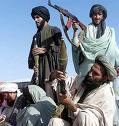NEW Nobel Peace Prize Shock: Ahmadinejad Wins!Iran’s Power Politics: A Warning To MoscowIran: Karroubi Reply to Ahmadinejad’s Appearance on US TV (9 October)Now, for the 2010 Nobel Peace Prize: Mehdi KarroubiThe Latest from Iran (9 October): Almost Four MonthsReceive our latest updates by email or RSS SUBSCRIBE TO OUR FEEDBuy Us A Cup of Coffee? Help Enduring America Expand Its Coverage and Analysis
1920 GMT: A Bit of Official Hesitation?
Press TV's website posts an article confirming the death sentences on three post-election detainees: "two are responsible for a deadly bombing and the remaining convict is a member of a terrorist organization". It names only Mohammad Reza Ali Zamani.
Some of the article is repetition of the very thin pretext for conviction: Zamani and the other member [Arash Pour-Ramani] of the "Iran Royal Association" are not tied to any criminal incident; however, "the group is responsible for a deadly bombing in the southern city of Shiraz back in April 2008, in which 13 people were killed and hundreds were wounded". The third detainee [Naser Abdul Hosseini] will die simply because his alleged membership in the Mujahedin-e-Khalq Organization, the armed wing of the People's Mujahideen Organization of Iran.
Yet, if you read closely, there are a couple of chinks in the article's open-and-shut case. You'll notice in the headline, "In Iran, three 'terrorists' are placed on death row", the quote marks of uncertainty. And the text notes that Ali Zamani's case has been highlighted by Amnesty International.
1630 GMT: A report by
AUT News names the three post-election detainees sentenced to death: "monarchists" Mohammad Reza Ali Zamani and Arash Pourrahmani (both of whom are in the mid-August "confession" video run by Press TV,
posted in a separate entry) and Naser Abdol Hosseini, alleged to be a member of the People's Mojahedin Organization of Iran.
1530 GMT: Yahoo! Makes It into State Media. It looks like the allegation over
Yahoo! passing 200,000 usernames to Iran authorities will now die down, as there is no verification of the Iranian Students Solidarity Organization's claim of a source inside the Iranian Government. Still, the Islamic Republic News Agency
gave the story several paragraphs today.
1520 GMT: Radio Netherlands has posted an English summary of the
condemnation by the Dutch Foreign Minister (noted in comments below) of the death sentence for Mohammad Reza Ali Zamani.
1505 GMT: Minutes after we told a BBC radio reporter of the death sentences for post-election detainees,
the BBC website adds, from the judiciary official who spoke to the Iranian Students News Agency, that "MZ" (probably Mohammad Ali Reza Zamani) and "AP" had been convicted for ties with the Kingdom Assembly of Iran, a banned monarchist group, and "NA" for links with the People's Mujahideen Organization of Iran, which has sought the overthrow of the Islamic government since 1979.
On Thursday, an Iranian reformist website reported that Mr Zamani, 37, had been sentenced to death. It is unclear whether he is the "MZ" mentioned by Isna.
1445 GMT:
Parleman News reports that
Mir Hossein Mousavi met Thursday with the representative of Grand Ayatollah Mousavi-Ardebili in Tehran. The description of the discussion is vague, saying that it apparently centred on senior clerics' input into Mousavi's plans for a "social network" for the Green Path of Hope.
1435 GMT: The
original Iranian Students News Agency report says only that three post-election detainees have received death sentences. The three cannot be named, according to the newspaper, because appeals are ongoing.
1410 GMT: More Death Sentences? Al Jazeera English, claiming information from Iranian Students News Agency, says a total of three post-election detainees, including Mohammad Reza Ali Zamani,
have been sentenced to death by the Tehran Revolutionary Court.
Caution is needed here. We've been following this assertion,
first posted by Twitter activists, for several hours. Those reports say three death sentences
in addition to Ali Zamani. With the help of readers, we have now found the original ISNA story (see 1435 GMT), but there is no other verification.
0920 GMT: The
Persian2English blog has published
the English text of a new post-election movement, The Green Thinkers’ Network. Considering "What Is True Freedom For Iran?", the Network writes, "Are we liberal democrats? Is it even necessary to label ourselves with these names? Each name has a history. Why should we carry the history of liberalism on our shoulders? Maybe we can have new customs. In our custom we have religion, but also freedom."
0755 GMT:
The Washington Post's alternative to
Barack Obama for the 2009 Nobel Peace Prize?
Neda Agha Soltan.
0630 GMT: Another quiet start after a relatively gentle Friday, but no doubt that there is one development of significance.
Mehdi Karroubi's letter, posted in the name of his son, to the head of Iran state broadcasting may not seem that dramatic. On the surface, it restates Karroubi's charges of detainee abuse, made since late July, to counter the message of President Ahmadinejad put out on American television. It returns to the battleground of the "enquiry" by the three-member judiciary panel, which unceremoniously threw out Karroubi's claims last month.
But there is a broader message here, both symbolic and very practical. Ahmadinejad might be posing himself on the international stage as Iran's leader, but Karroubi's letter is a reminder that the President has very clay feet. And it comes after weeks in which the Government appeared to have cut off Karroubi's communications. The
Etemade Melli newspaper was closed and the website of Karroubi's reformist party was taken down, shutting off the daily drip-drip of allegations that was wearing away the Government authority.
Now the cleric is back,
with a resurrected website and the certainty that he is still noticed. He is not mincing words --- Ahmadinejad's "[US] interview was pure lies"; "traitors have viciously attacked me" --- and telling the authorities that he will not be stopped: "The late Imam [Khomeini] said that he would sacrifice his life for the people of this nation."
And the last line of the letter contains pages of meaning, after all the Government attempts to bottle up the opposition in a vacuum of news: "Despite all the efforts, borders have been broken and people have access to information."
 Friday, October 16, 2009 at 19:57
Friday, October 16, 2009 at 19:57  Within hours of the British court order for the release of documents connected with the alleged torture of detainee Binyam Mohamed, and British Foreign Minister David Miliband's insistence that release of the material would risk the US-UK intelligence relationship, I spoke with Peter Allen of BBC Radio 5 about the case (and, yes, I did use the word "lie" with reference to Mr Miliband). The interview starts just before the 2:20.00 mark.
Within hours of the British court order for the release of documents connected with the alleged torture of detainee Binyam Mohamed, and British Foreign Minister David Miliband's insistence that release of the material would risk the US-UK intelligence relationship, I spoke with Peter Allen of BBC Radio 5 about the case (and, yes, I did use the word "lie" with reference to Mr Miliband). The interview starts just before the 2:20.00 mark.
 Within hours of the British court order for the release of documents connected with the alleged torture of detainee Binyam Mohamed, and British Foreign Minister David Miliband's insistence that release of the material would risk the US-UK intelligence relationship, I spoke with Peter Allen of BBC Radio 5 about the case (and, yes, I did use the word "lie" with reference to Mr Miliband). The interview starts just before the 2:20.00 mark.
Within hours of the British court order for the release of documents connected with the alleged torture of detainee Binyam Mohamed, and British Foreign Minister David Miliband's insistence that release of the material would risk the US-UK intelligence relationship, I spoke with Peter Allen of BBC Radio 5 about the case (and, yes, I did use the word "lie" with reference to Mr Miliband). The interview starts just before the 2:20.00 mark.
 BBC,
BBC,  Binyam Mohamed,
Binyam Mohamed,  David Miliband,
David Miliband,  Detainees,
Detainees,  Guantanamo Bay,
Guantanamo Bay,  Scott Lucas,
Scott Lucas,  Torture in
Torture in  UK & Ireland,
UK & Ireland,  War On Terror
War On Terror  BBC,
BBC,  Binyam Mohamed,
Binyam Mohamed,  David Miliband,
David Miliband,  Detainees,
Detainees,  Guantanamo Bay,
Guantanamo Bay,  Scott Lucas,
Scott Lucas,  Torture in
Torture in  UK & Ireland,
UK & Ireland,  War On Terror
War On Terror 

 Receive our latest updates by email or RSS
Receive our latest updates by email or RSS  1920 GMT: A Bit of Official Hesitation?
1920 GMT: A Bit of Official Hesitation?